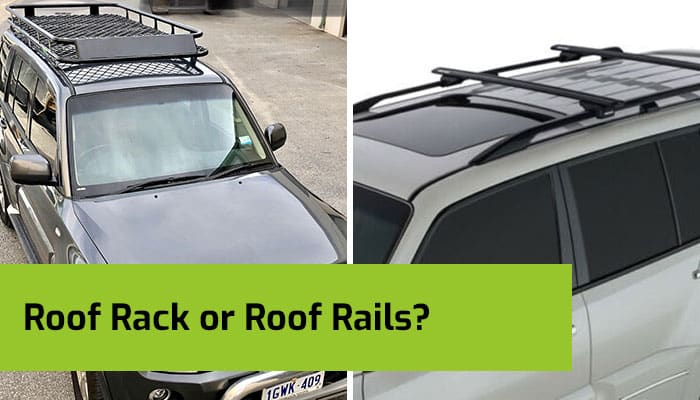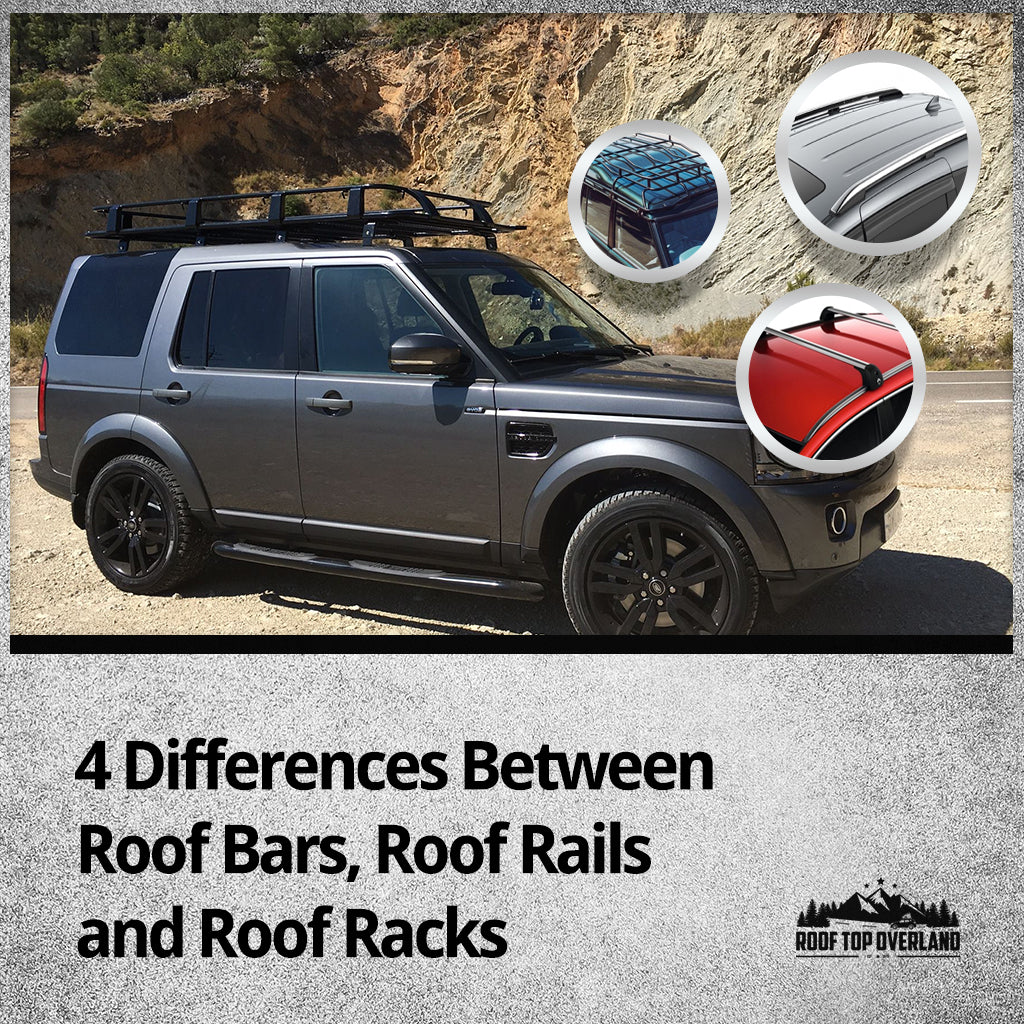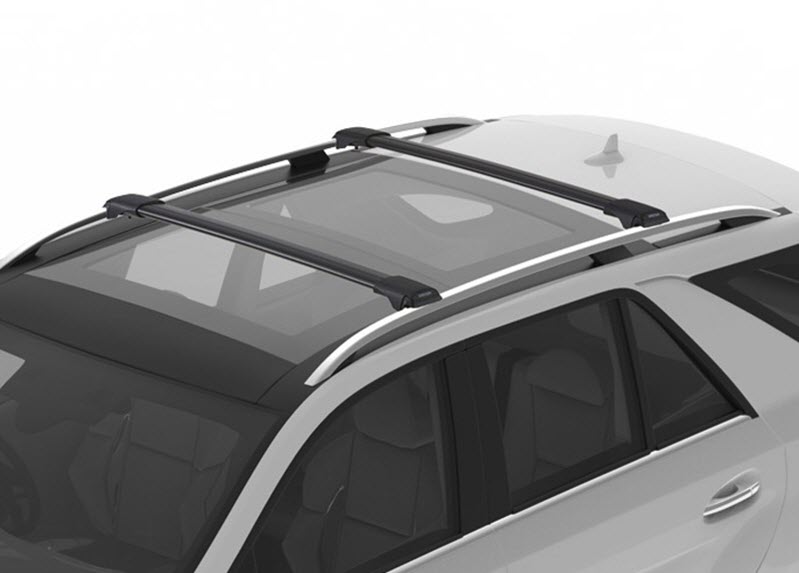Roof racks are complete systems for carrying cargo on your car’s roof. Crossbars are the horizontal bars that support the roof rack.
Roof racks and crossbars are essential for transporting extra cargo securely on your vehicle. Roof racks typically include crossbars, towers, and mounts, creating a versatile system for carrying various items. Crossbars, on the other hand, are the horizontal components that span the width of your car’s roof.
These bars provide the base for attaching other accessories like bike racks, cargo boxes, or kayaks. Choosing between a full roof rack system and just crossbars depends on your specific needs and vehicle type. Both options enhance your car’s cargo capacity, making road trips and outdoor adventures more convenient. Properly installed, they ensure safe and efficient transportation of your gear.

Credit: yakimasupport.zendesk.com
Roof Racks
Roof racks are a popular choice for car owners. They provide extra storage space on top of vehicles. Roof racks are versatile and can carry various items, including luggage, bikes, and kayaks. They enhance the car’s functionality for outdoor adventures and long trips.
Types Of Roof Racks
There are different types of roof racks, each serving unique purposes.
- Fixed Point Roof Racks: These attach directly to fixed points on your car’s roof.
- Raised Rail Roof Racks: These fit cars with raised rails running along the roof.
- Flush Rail Roof Racks: These attach to flush rails that sit flat on the roof.
- Bare Roof Racks: These are designed for cars without any rails or fixed points.
Pros And Cons
| Pros | Cons |
|---|---|
| Increased storage capacity | Can reduce fuel efficiency |
| Versatile and adaptable | May produce wind noise |
| Easy to install and remove | Requires maintenance |
Best Uses
Roof racks are ideal for various purposes:
- Camping Trips: Carry tents, sleeping bags, and other camping gear.
- Sports Equipment: Transport bikes, kayaks, and skis.
- Vacation Travel: Store extra luggage and travel bags.
- DIY Projects: Move large items like ladders and lumber.
Crossbars
Crossbars are essential for transporting items on your vehicle’s roof. They provide a sturdy foundation for various cargo. Crossbars are the horizontal bars fixed across the roof. They support roof racks, cargo boxes, and other accessories. Let’s explore the different types of crossbars and their uses.
Types Of Crossbars
There are several types of crossbars available:
- Factory Crossbars: These are pre-installed by the vehicle manufacturer.
- Aftermarket Crossbars: These can be purchased separately and installed on your vehicle.
- Aero Crossbars: Designed to reduce wind noise and drag.
- Square Crossbars: Known for their strength and durability.
- Round Crossbars: Flexible and compatible with many accessories.
Pros And Cons
| Pros | Cons |
|---|---|
| Easy to Install | May Increase Wind Noise |
| Supports Various Accessories | Can Affect Fuel Efficiency |
| Durable and Sturdy | Requires Proper Maintenance |
Best Uses
Crossbars are versatile and have many uses:
- Biking: Attach bike racks for easy transportation.
- Kayaking: Securely carry your kayak or canoe.
- Skiing: Transport skis and snowboards safely.
- Camping: Mount roof tents and storage boxes.
- Travel: Use cargo boxes for extra luggage space.
Choose crossbars that fit your needs for a better travel experience.
Materials And Durability
Choosing between a roof rack and crossbars often boils down to materials and durability. The right choice ensures long-lasting performance and safety. Let’s dive into the details.
Common Materials
Roof racks and crossbars come in various materials, each with its pros and cons.
| Material | Pros | Cons |
|---|---|---|
| Aluminum |
|
|
| Steel |
|
|
| Plastic |
|
|
Longevity And Strength
Longevity and strength are crucial for any roof rack or crossbar. Your choice impacts how well it holds up over time.
Aluminum roof racks and crossbars last long. They resist rust and remain strong. Yet, they might dent if hit hard.
Steel options offer unmatched strength. They are perfect for heavy loads. But, they need care to avoid rusting. Regular checks and coatings help maintain them.
Plastic racks and crossbars suit light use. They avoid rust and are very light. Yet, they lack strength and durability. Heavy loads can crack them.
Choosing the right material impacts the lifespan and performance of your roof rack or crossbars. Think about what you’ll carry and how often you’ll use them.
Installation Process
Installing roof racks and crossbars can be quite different. Each has its own steps and tools required. Let’s dive into the details of each installation process.
Roof Racks Installation
Installing roof racks can be a bit more complex. Follow these steps:
- First, gather all the necessary tools.
- Check the instructions provided by the manufacturer.
- Place the roof rack on the car roof.
- Align the rack with the car’s mounting points.
- Secure the rack with screws and bolts.
The tools you might need include:
- Screwdriver
- Wrench
- Measuring tape
Make sure to double-check all screws and bolts. Tighten them properly for safety.
Crossbars Installation
Installing crossbars is usually simpler and quicker. Here’s how to do it:
- First, locate the mounting points on your vehicle.
- Place the crossbars on these points.
- Adjust the crossbars to the desired width.
- Secure them using the provided clamps.
The tools needed for crossbars are minimal. Often, you only need a wrench.
Ensure the crossbars are tightly secured. Wiggle them to check stability.
In summary, both roof racks and crossbars have unique installation steps. Choose the one that best suits your needs and comfort level.
Cost Comparison
Understanding the cost differences between roof racks and crossbars can help you make an informed choice. Both options offer unique features and benefits. Let’s dive into the cost comparison to see which suits your budget better.
Roof Racks Pricing
Roof racks come in various styles and materials. Prices vary based on these factors. Basic models can start as low as $100. These are suitable for light loads and occasional use. Mid-range roof racks cost between $200 and $500. These offer better durability and features. High-end roof racks can exceed $500. They are made from premium materials and offer maximum load capacity.
Here’s a quick price breakdown in a table:
| Type | Price Range |
|---|---|
| Basic | $100 – $200 |
| Mid-Range | $200 – $500 |
| High-End | $500+ |
Crossbars Pricing
Crossbars are generally more affordable than full roof racks. They are simpler and easier to install. Basic crossbars can start as low as $50. These are ideal for small loads. Mid-range crossbars range from $100 to $300. They offer better load capacity and durability. Premium crossbars can cost over $300. These provide maximum strength and are often aerodynamically designed.
Here’s a quick price breakdown in a table:
| Type | Price Range |
|---|---|
| Basic | $50 – $100 |
| Mid-Range | $100 – $300 |
| Premium | $300+ |
Choosing between roof racks and crossbars depends on your needs and budget. Each option has its pros and cons. Make sure to consider them before making a decision.

Credit: greatracks.com.au
Compatibility
Compatibility is a key factor when choosing between roof racks and crossbars. It’s essential to know which option best fits your vehicle and accessories. This helps ensure safety and usability.
Vehicle Types
Different vehicles require different setups. Cars often have fewer roof options. SUVs usually have pre-installed roof rails. Trucks may need specialized racks for their beds.
| Vehicle Type | Roof Rack Compatibility | Crossbar Compatibility |
|---|---|---|
| Cars | Limited | Moderate |
| SUVs | High | High |
| Trucks | Specialized | Specialized |
Accessory Compatibility
Choosing the right setup also depends on the type of accessories you plan to carry. Bikes often need specific racks. Kayaks require sturdy crossbars.
- Bikes: Some racks are designed for multiple bikes.
- Kayaks: Need crossbars with extra padding.
- Skis/Snowboards: Usually fit well on both setups.
Ensure that your chosen setup supports your gear. Always check weight limits and mounting options.
User Reviews
Understanding user feedback can help you choose between roof racks and crossbars. Read on to learn what users think about each option.
Roof Racks Feedback
Users love roof racks for their versatility. They can carry bikes, kayaks, and more. Roof racks are strong and secure. People feel their gear is safe. Some users find installation challenging. They mention roof racks can be noisy. Wind noise is a common complaint.
- Pros:
- Versatile
- Strong and secure
- Safe for gear
- Cons:
- Challenging installation
- Wind noise
Crossbars Feedback
Crossbars are praised for their ease of use. Installation is quick and simple. Users say crossbars are less noisy. They fit many car models. Some users note that crossbars have a lower weight limit. This can be a drawback for heavy loads.
- Pros:
- Easy to install
- Less noise
- Fits many cars
- Cons:
- Lower weight limit

Credit: rooftopoverland.com
Frequently Asked Questions
What Is The Difference Between Roof Racks And Crossbars?
Roof racks are a complete system for carrying cargo on your vehicle. Crossbars are just one component of a roof rack system. Together, they provide a stable platform for transporting items.
Can I Use Crossbars Alone?
Crossbars alone are not sufficient for carrying cargo. They are designed to be part of a roof rack system. Additional components like mounts and cargo boxes are often needed.
Are Roof Racks Universal?
Most roof racks are not universal. They are designed to fit specific vehicle makes and models. Always check compatibility with your vehicle before purchasing.
How Do I Choose Between Roof Racks And Crossbars?
Choose based on your cargo needs. Roof racks are ideal for carrying large items. Crossbars are suitable for lighter loads and specific gear like bikes or skis.
Conclusion
Choosing between roof racks and crossbars depends on your needs. Roof racks offer versatility, while crossbars provide simplicity. Consider the type of gear and frequency of use. Both options enhance your vehicle’s capacity. Make an informed decision for the best fit.
Your adventures await with the right gear.

